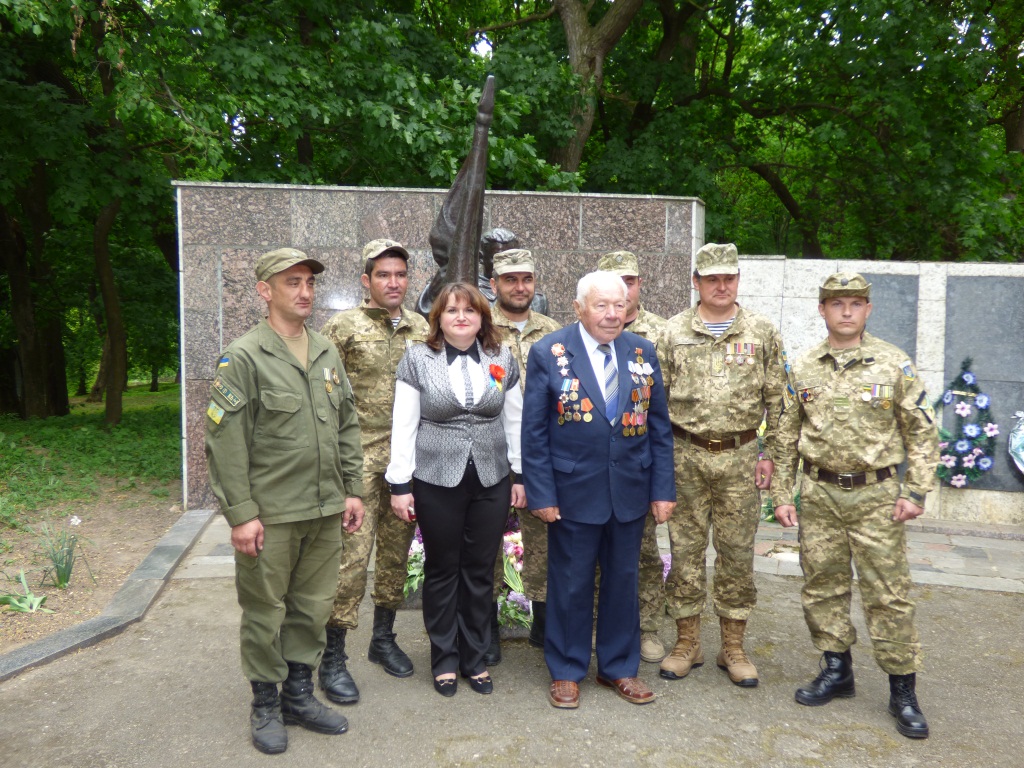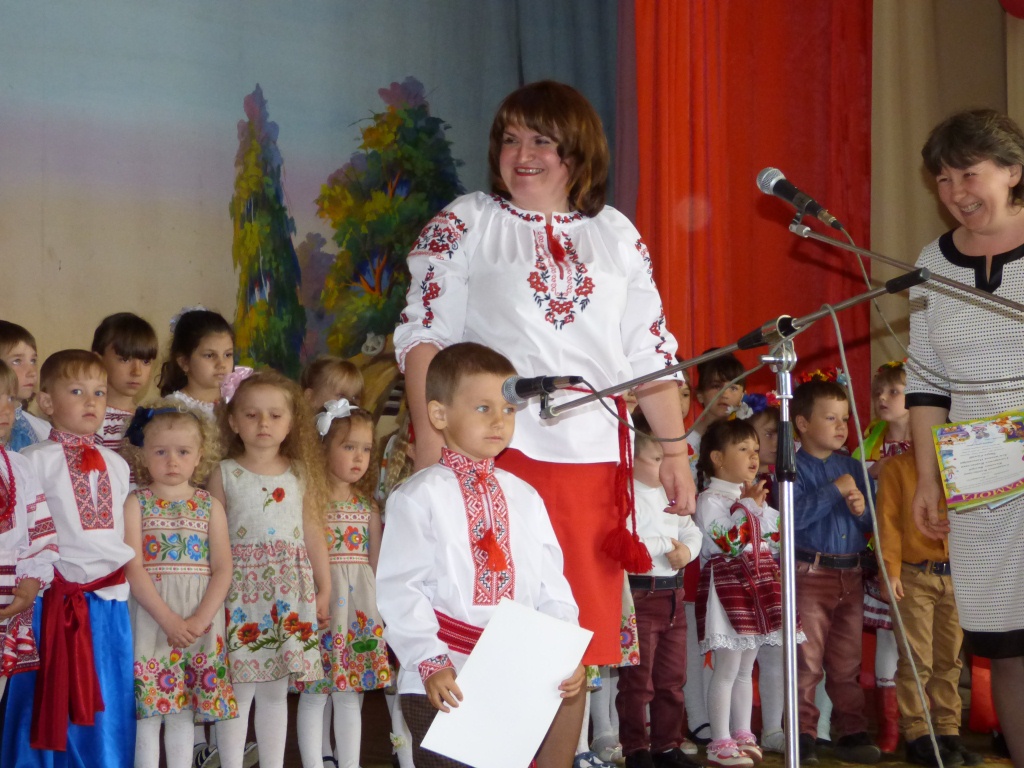12 questions to head of Mokrokalyhirska AH
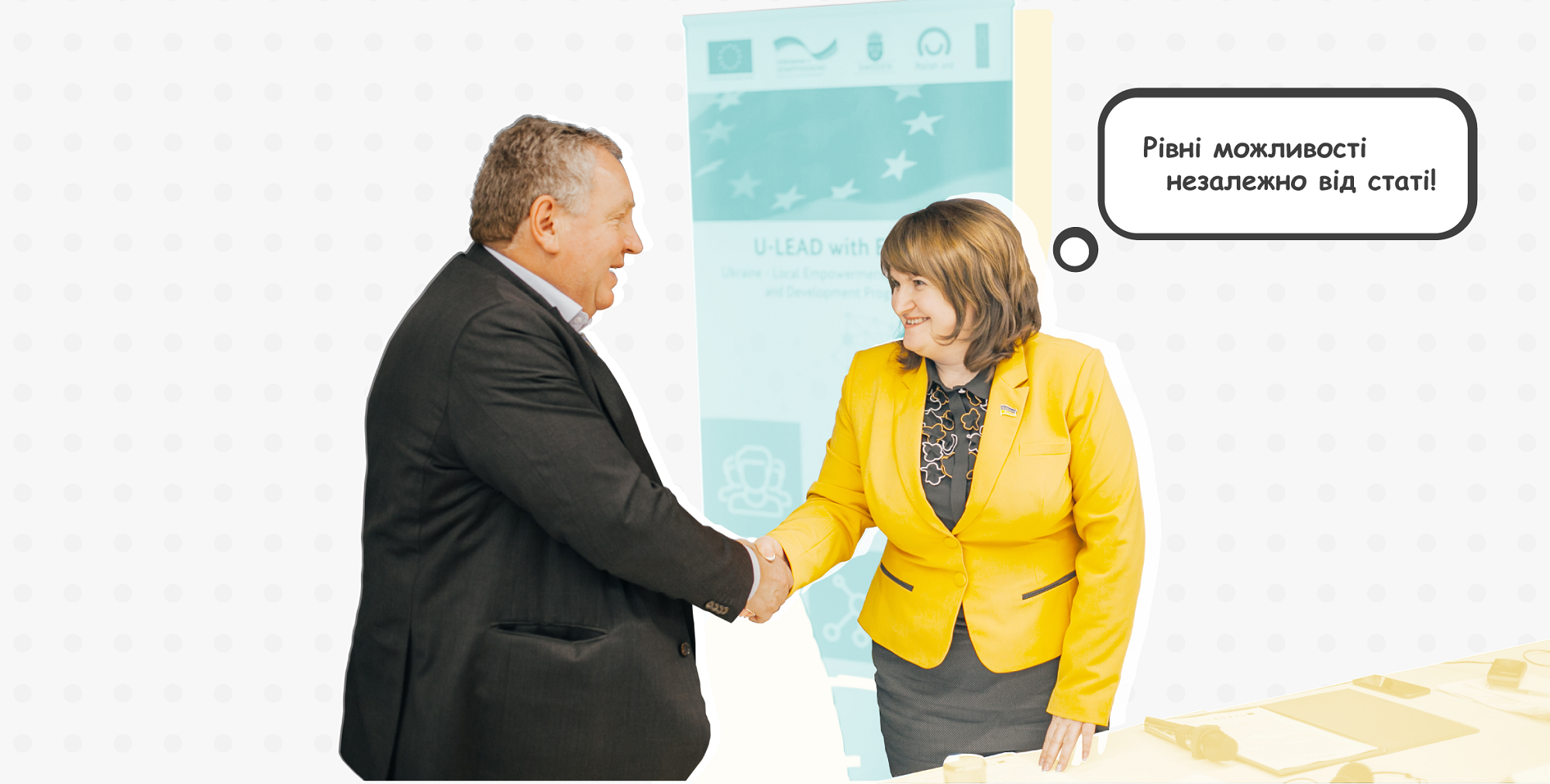
Viktoria Pypa has been working in local self-government for more than twelve years. In November 2015, she won over six candidates and headed the newly formed Mokrokalyhirska rural amalgamated hromada in the Cherkasy Oblast. Three months later, the Mokrokalyhirska AH became a participant of the Inception Phase of the U-LEAD with Europe Programme. Established in 2015, the hromada has more than 4200 residents (60/40% - women/men) and includes 7 settlements. Ms Pypa is one of two women from among 26 leaders of AHs of the Programme’s Inception Phase.
The U-LEAD with Europe Programme supports the equal rights of women and men, in particular when receiving and providing administrative services. Gender equality is one of the key values of improved administrative service delivery, in the frames of which up to 600 ASCs are being established and supported. We talked with Ms Victoria Pypa about gender equality and local self-government.
Ms Pypa, what do you most like your job for?
I always wanted to make the world better. Now the post of the AH head gives me this opportunity: along with the team we do many useful things. It is very inspiring to see the outcomes of our work and the changes that occur as a result of decentralisation.
What is your opinion about the situation of gender equality in Ukraine and in the world?
I believe that men have already shown themselves throughout the history of mankind, and it's time for women to deal with governmental issues and demonstrate their potential in this direction.
How do you evaluate the gender equality level in your hromada?
Our hromada is small but, in my opinion, the situation with the gender balance is a good reflection of the overall picture in the country, when more than 80% of women work in the executive committee, and men prevail in the village council, with a rough distribution of 60/40.
What is the most difficult decision you had to take as an AH head?
Now we are at an extremely important stage of decentralisation – finally, not only hromada activists but ordinary people need to understand the whole essence of this process: not only to receive help from the new government, but also to take on certain responsibilities. It's about banal payment of taxes to the local budget. This is an urgent issue in the hromadas and, in my opinion, a transitional moment of the reform: business entities will begin to fulfill their tax obligations, when it is clearly understood that the intended purpose and distribution of these funds can always be learned from certain people – representatives of local authorities.
Traditionally, the percentage of women in elected positions in Ukraine decreases depending on the governance level. In your opinion, when will the situation start to change?
Everything has its time. In my opinion, these changes have already begun. Opportunities for the development of women in state governance have appeared and everything depends on our active approach.
How is gender component taken into account in the work of local authorities, according to your personal observations?
From the experience of local self-government, I can only say that women are really more sociable and able to make balanced and compromise decisions, that is, when all the interested parties feel that their position is heard. Men are stronger in making quick and unequivocal decisions.
What does gender equality mean to you personally?
Equal opportunities regardless of gender.
What needs to be done at the hromada level and at the state level to improve the situation in this regard?
I will not be inventive if I say that it is necessary to integrate the principles of gender equality into the school curriculum so that small citizens from their childhood understand the importance of this topic, and most importantly – its usefulness in everyday life.
At the state level, I think it is necessary to create conditions for increasing the number of women deputies in the Verkhovna Rada. I am not a perfect pundit of the issue, but I am sure that in world practice there are mechanisms for creating a more gender-balanced parliament.
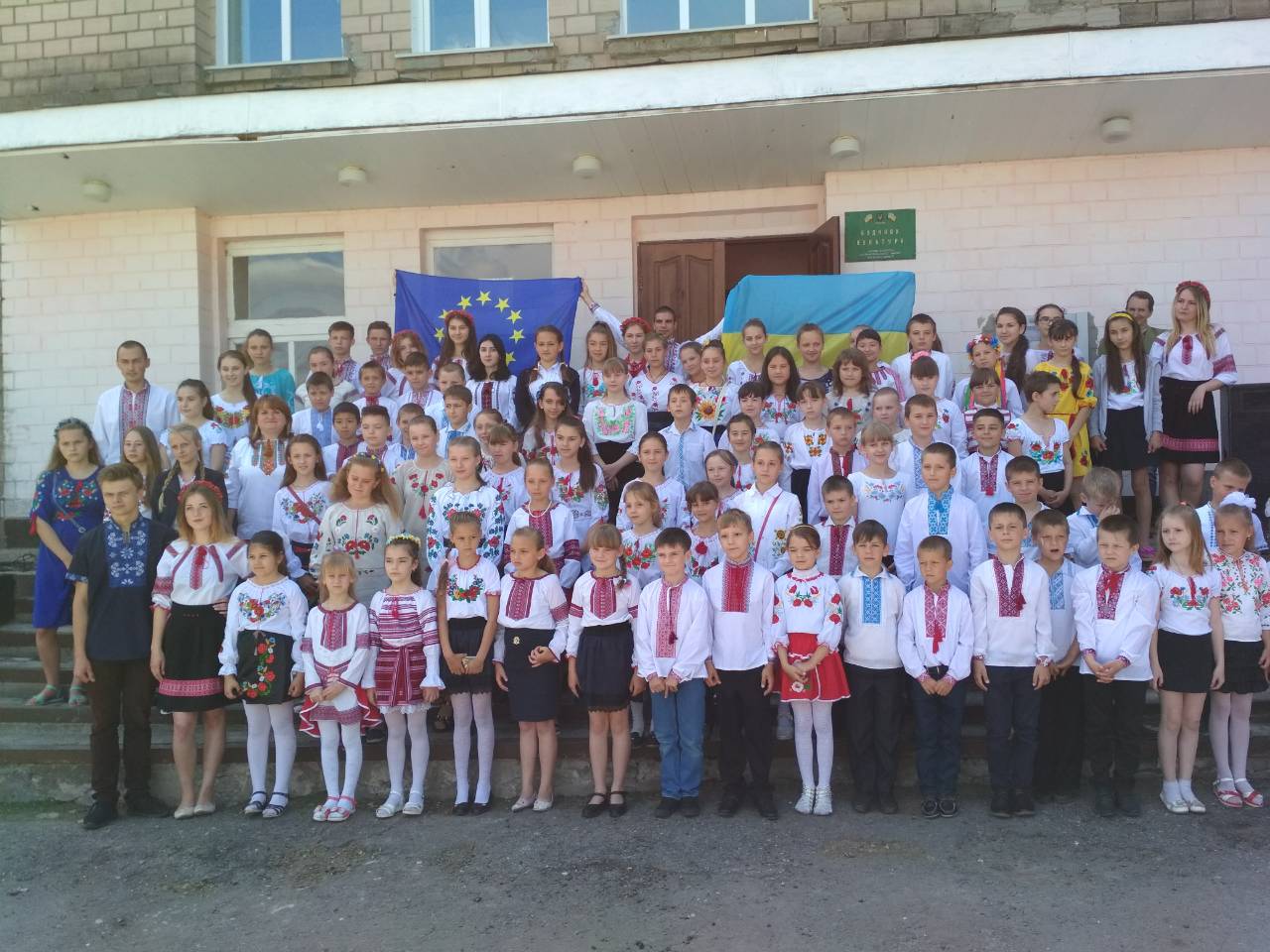
Europe Day and Vyshyvanka Day celebration
Festival of children's creativity "Zoryana Kraplynka"
How did you learn about the opportunity to participate in the U-LEAD with Europe Programme? Did you have any experience with international assistance programmes?
Prior to working with U-LEAD, we managed to attract the UNDP assistance in providing better services in education and healthcare of the Mokrokalyhirska amalgamated hromada. The hromada learned about the possibility to create a high-quality Administrative Service Centre (ASC) from representatives of the Local Government Development Centre. I am very pleased about the cooperation with international partners, because it is always honest and decent relationship with the observance of all obligations.
Have you used a gender-based approach to self-government before participating in the Programme?
We have tried, but in all hromadas there is a very significant factor influencing all processes without exception – this is a shortage of personnel. I emphasise that it concerns every sphere of governance at the local level.
I also want to add that, in fact, the gender topic is very interesting to the residents. Therefore, despite the fact that the gender training for the ASC administrators took place on the day off, the audience was almost the largest in number. Even those who do not deal with the ASC wanted to listen to the topic.
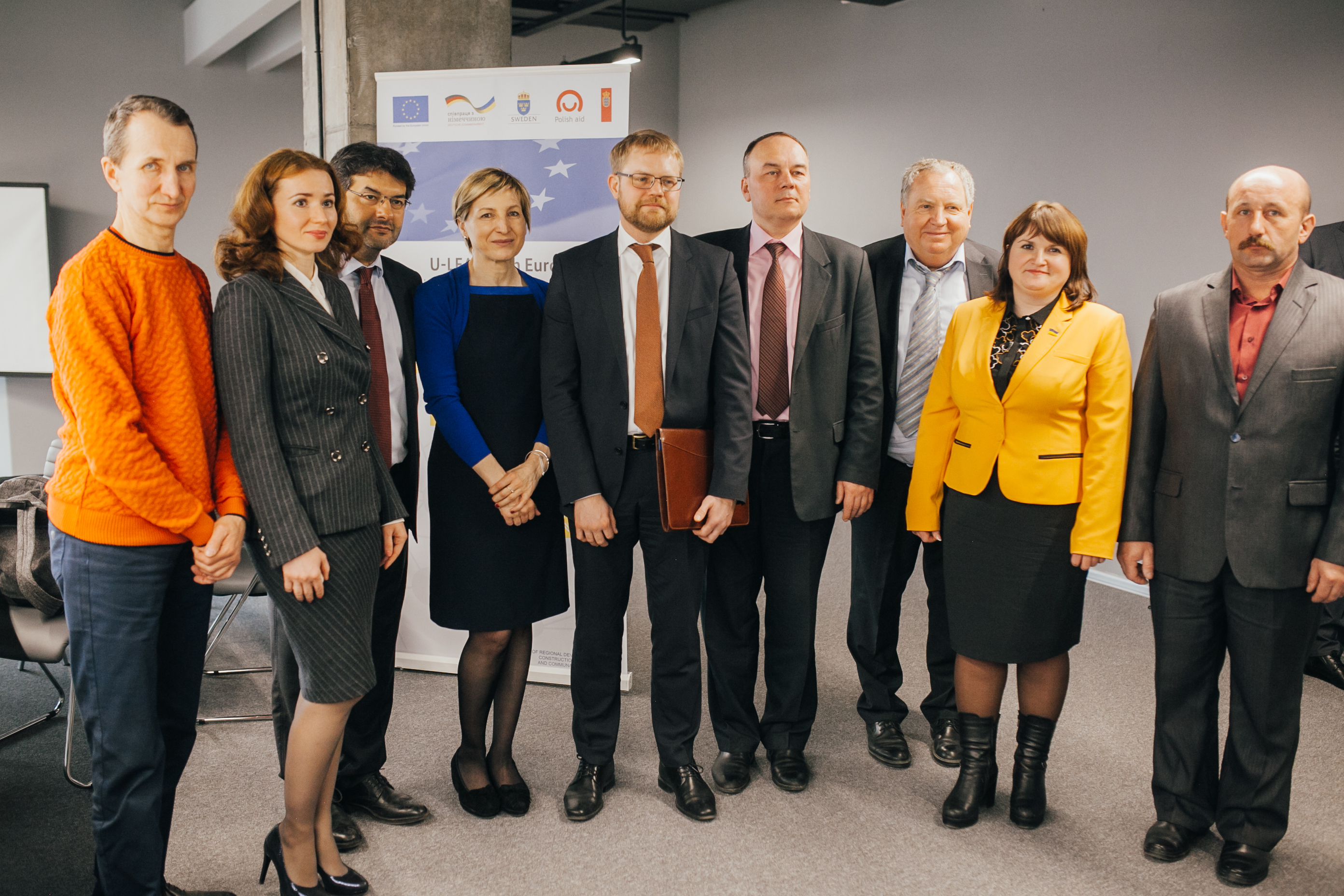
Head of the Mokrokalyhirska AH at the signing of the partnership agreement with the U-LEAD with Europe Programme at the House of Decentralisation
What conclusions did you make after the cooperation? What advice can you give to those who hesitate to participate?
It is simple: the decentralisation process is irreversible, and, at the same time, the donor assistance is not endless. Therefore, the more opportunities are used now, the better life of the hromada will be in 2-3 years. Yes, I say that I am planning to run for the next elections of the AH head, because during the period since 2015, firstly, we have gone through a difficult stage of power decentralisation with dignity, and secondly, everything we initiated has just begun to bear fruits. So, it is very interesting for me to work further and to see the results.
How has the life of the hromada changed after ASC’s opening?
It has changed essentially, because residents no more need to go to rayon centre to get services. Previously, we had one administrator providing 16 services. At the moment, four ASC administrators provide 126 services in the comfortable environment. In addition to the institutional assistance, we renovated the premises of the ASC, got new furniture, equipment and software. But the most important and most valuable thing is training of the personnel. We would never have found these resources on our own, so I am especially grateful to the Programme for this help.
25 February 2026
Новий погляд на впровадження політики полюсів...
Автори: Ярослав Жидик, керівник напрямку регіонального розвитку EasyBusiness, асоційований партнер консалтингової...
24 February 2026
Інклюзивний та людиноцентричний підхід у...
Людиноцентричний підхід та інклюзія — це вже не про додаткові заходи для окремих груп, а про проєктування систем...
24 February 2026
European LEADER approach for Ukrainian...
Ukraine launched the systematic implementation of the European LEADER approach, which is expected to revitalise rural...
24 February 2026
Анонс: вебінар «Робота з учнями та контингентом у системі АІКОМ-2: від зарахування до випуску»
Анонс: вебінар «Робота з учнями та контингентом...
Запрошуємо керівників органів управління освітою територіальних громад та представників органів місцевого...
